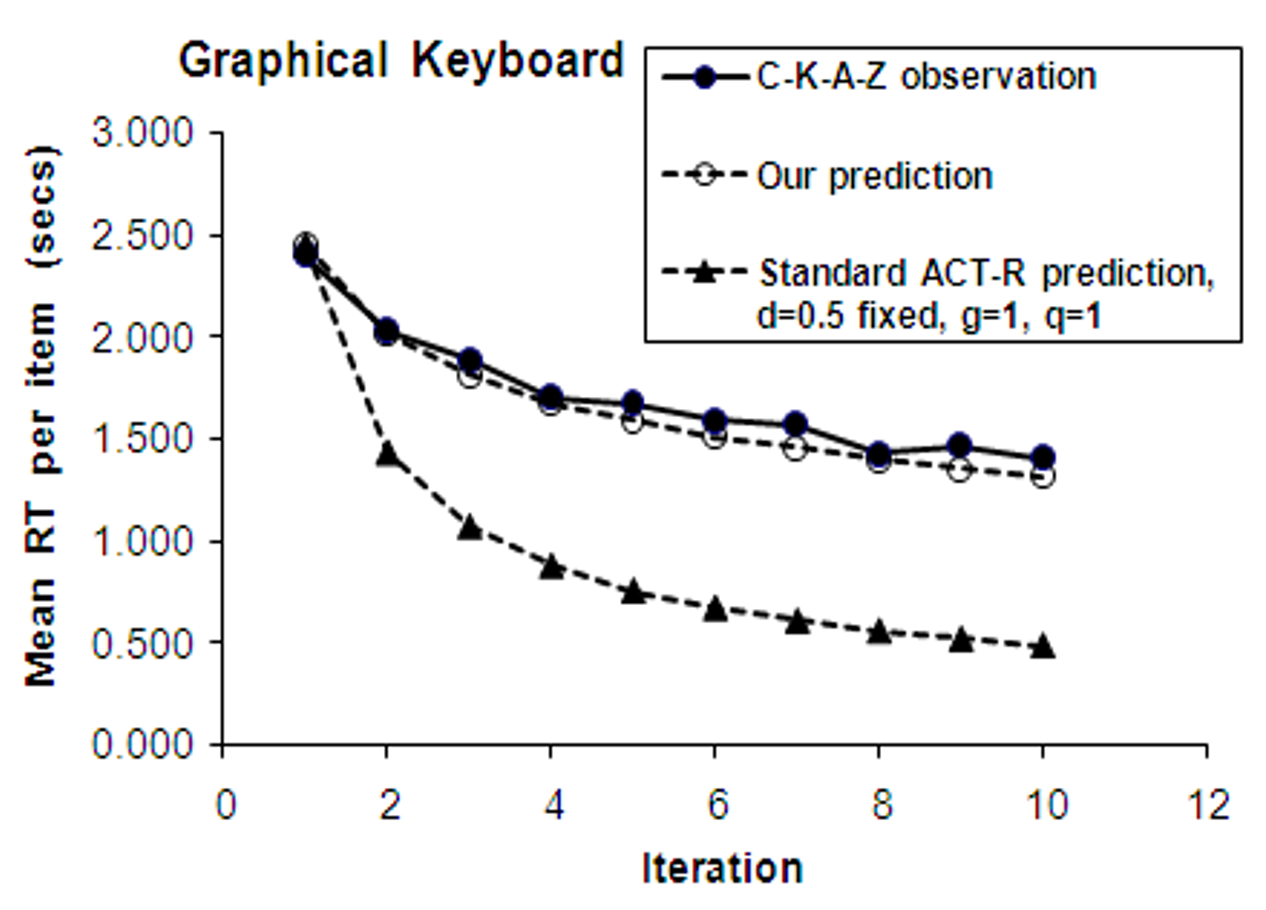
Proactive Interference in Location Learning: A New Closed-Form Approximation Inproceedings
Arindam Das, Wolfgang Stuerzlinger
Abstract:
The ACT-R cognitive theory models forgetting in general with a constant "decay due to passage of time" parameter. However, this is not sufficient to predict learning for frequently executed tasks in dense arrangements of items. Prominent examples are two-dimensional location learning in finding keys on a keyboard or clicking on items on a web page or in a graphical user interface. Our work presents a new way to theoretically model the effect of Proactive Interference, i.e. the effect of the history of events on location learning, through an extension to ACT-R's mathematical model of declarative memory strength. It predicts that each time an item is searched for and found, the item gets "stronger", i.e. easier to remember. However, this strength diminishes not only through the passage of time, but also due to interference from other (non-target) items that have been encountered in the past. We tested the predictions of our new model against empirical measurements from two previous studies that involve simple visual search and selection. The predictions fit the experimental data very well.
